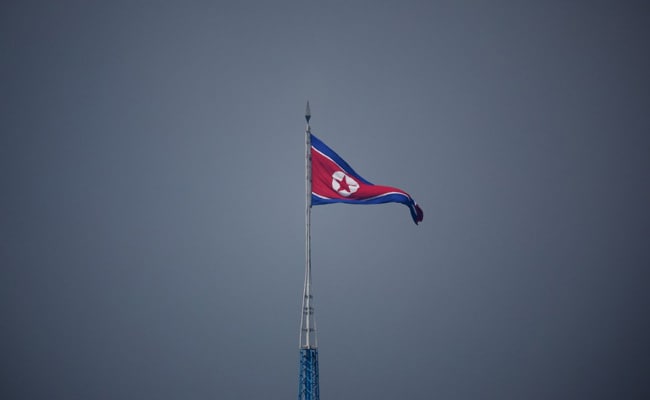Opinion: Opinion | Bridging The Rhine And The Ganges: Germany's Renewed 'Focus India'
Following nuclear testing in 1998, the Singh-Talbott talks provided the framework for shifting the Indo-US relationship from "estranged democracies" to "engaged democracies."


Following nuclear testing in 1998, the Singh-Talbott talks provided the framework for shifting the Indo-US relationship from "estranged democracies" to "engaged democracies." A comparable transition is already ongoing between Germany and India, as seen by Germany's "Focus on India" policy. This move is underscored before Chancellor Olaf Scholz's October 2024 visit to New Delhi, indicating a growing realization that India is not just a key regional actor but also an important partner in the global arena. Indian External Affairs Minister S. Jaishankar's 2022 statement, "Europe must grow out of the mindset that its problems are the world's problems," resonates strongly with Germany's stance, which coincides with a more pragmatic and multipolar world order.
Chancellor Scholz's Visit and Growing Partnership
Chancellor Scholz's visit to India is a significant milestone in the growing Indo-German partnership. His schedule included the Asia-Pacific Conference of German Businesses in Delhi, where he and Prime Minister Modi spoke to senior industry leaders from both countries. With bilateral commerce reaching a record high of Euro 30 billion in 2023 and strong German interest in India's technology and manufacturing sectors, this conference provided an opportunity to transform economic engagement into a long-term industrial collaboration. The visit further channelled the Green and Sustainable Partnership between India and Germany. Furthermore, the two countries began commemoration of the 25th anniversary of their strategic Partnership, providing an appropriate backdrop for Scholz's visit and demonstrating the maturity of the relationship. Scholz emphasized on contribution of the Indian diaspora in the growth of Germany and released India India-specific Skilled Labour Strategy.
A New Realization in the West
The release of two India-specific documents signals the post-Markel era in the India-German partnership. The tone and content of those two documents indicate a positive alignment towards India. The Scholz administration has appreciated the vitality of Indian democracy and desisted from lecturing India. Germany's strategic focus on India highlights three major themes underscoring India's rising global position. First, the changing geopolitical landscape has led Germany and the West to view India not just as an occasional ally but as a strategic partner with lasting influence. This shift is captured in Germany's recent "Focus on India" strategic document, signalling a transformation from episodic cooperation to a committed partnership. The document underlined India as a 'central and active shaper of international politics'. The West increasingly recognises India's ability to contribute strategically, reflecting a maturing relationship that is responsive, rather than reactionary, to shared global challenges. Like the United States' shift in its India policy post-1998, Germany's approach now highlights India's role as a reliable partner in areas such as economic resilience, technology, and sustainable development.
The Focus on India document's identification of India as a "stabilizer" in the Indo-Pacific underscores the second major theme: India's Anchor of Stability, both regionally and on broader global issues. With rising concerns about China's influence, Germany acknowledges India as essential to a free and open Indo-Pacific. Thus, recognizes the Indian commitment to safeguarding maritime security and upholding sovereignty. Chancellor Scholz's recent visit to the German frigate Baden-Wurttemberg in Goa further emphasized this stance, highlighting the alignment between Germany's Indo-Pacific vision and India's security priorities. As India and Germany strengthen their ties in the Indo-Pacific, their partnership is moving beyond transactional goals to shared principles of freedom and mutual respect for sovereignty. This reflects the fundamental shift in Germany's perspective concerning the Indo-Pacific. In 2020, the German government's Indo-Pacific policy guidelines have referred to India as 'another Indo-Pacific partner'.
Finally, India's unique positioning as a pragmatic and reliable bridge in complex conflicts, such as the Russia-Ukraine war, is gaining international recognition. Unlike other major powers, India maintains open diplomatic channels with all stakeholders in the conflict, including the U.S., Germany, Russia, and Ukraine. The recently concluded BRICS plus summit in Kazan in Russia signalled India holds the best geopolitical position globally. Germany's acceptance of India's neutral stance highlights an understanding that independence in decision-making and focus on long-term relationships shape Indian foreign policy. Unlike China, whose interests often diverge from Western priorities, India promotes global stability without treating crises as mere transactions. This perception of India as a pragmatic yet empathetic bridge solidifies its credibility on the world stage and demonstrates its value in navigating geopolitical conflicts with sensitivity and reliability.
Together, these themes reveal a fundamental shift: Germany and the West are moving from viewing India as a regional ally to recognizing it as a strategic partner with a stabilizing and mediating influence essential to today's multipolar world.
Limitations and Conclusion
Germany's "Focus on India" policy marks a shift from a distant, episodic relationship with New Delhi to a steady, strategic collaboration grounded in mutual respect for sovereignty and values. However, while Germany acknowledges India's significance, the policy's cover-where Kashmir is subtly obscured on the map-hints at lingering sensitivities. Besides, the Focus on India document refers to the so-called "Global South" on three occasions. In the West, this term is often viewed dismissively. In contrast, New Delhi and over 100 capitals worldwide identify with it proudly. The disdainful tone concerning the term underlines the need for jointly traversing along the road of partnership.
Yet, this evolution reflects Germany's move from a Eurocentric approach to a realistic embrace of global multipolarity. By viewing India as a true partner, not merely a regional ally, Germany aligns itself with the emerging world order. This alliance offers both nations a historic opportunity to address shared challenges, drive economic growth, and enhance stability amid global shifts.
Abhishek Chaudhari is currently on an academic break to pursue a mid-career degree at Harvard Kennedy School. Aniket Bhavthankar recipient of Konrad Adenauer Stitung's doctoral fellowship.
Disclaimer: These are the personal opinions of the authors



































![Safari Thorium Neo 8-Wheel Luggage Set Trolley Bags (Set of 3) at just Rs. 5,599 [MRP 29,100]](https://savefree.in/uploads/images/202409/image_870x580_66f63845060f0.webp?#)












![Handmade Brown Mango Wood Chopping Board At just Rs. 89 [MRP 599]](http://savefree.in/uploads/images/202303/image_870x580_641bf7e9c2206.jpg?#)


